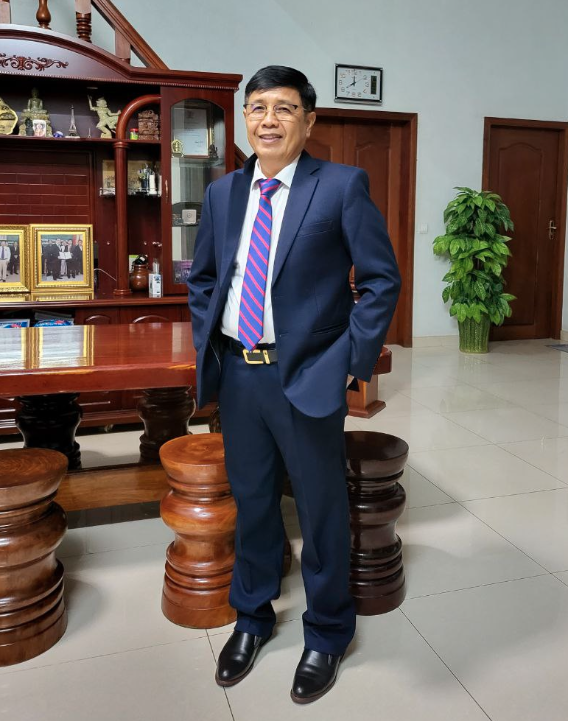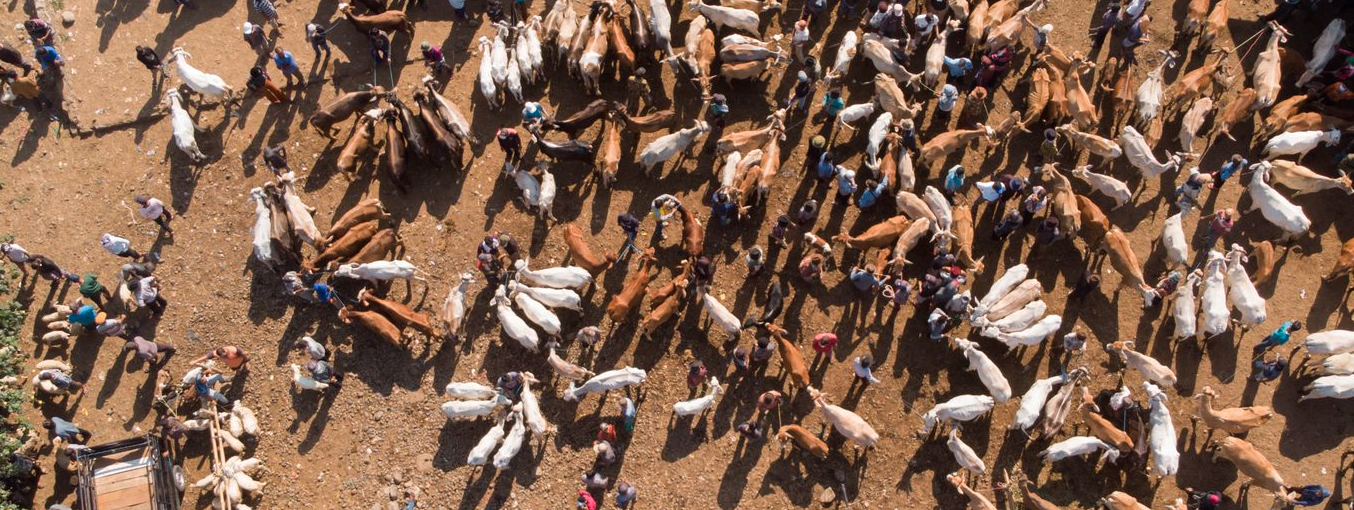Meet Dr Sothyra Tum
Director, National Animal Health and Production Research Institute Cambodia
Can you please tell us about your work?

I am the Director of the National Animal Health and Production Research Institute (NAHPRI), General Directorate of Animal Health and Production (GDAHP), Phnom Penh, Cambodia.
I have been working for the directorate since my graduation from the Royal University of Agriculture, Phnom Penh, in 1989. I completed my MSc from James Cook University in Queensland, Australia, on the application of Geographic Information Systems (GIS) for the control of Fascioliasis in Cambodia. I have served as the Chief of Veterinary Public Health and have participated in several national animal disease control programs, including FMD and HPAI. I was involved in several studies to assess the quality of meat in slaughterhouses in Phnom Penh. I completed my Doctorate from Murdoch University, Western Australia, working on epidemiology and economic studies to support the establishment of a progressive zoning approach for the control of FMD disease in the Mekong region. Thereafter, I worked with the Food and Agriculture Organisation (FAO) of the United Nation as a regional epidemiology expert at the FAO Regional Office for Asia and the Pacific from March 2011 to September 2014.
As a veterinary epidemiologist, I am interested in applying and sharing knowledge on disease surveillance and field outbreak investigation to field officers to strengthen disease reporting and enhance early warning systems in the country. To date, I have facilitated a number of surveillance programs, including slaughterhouse, field, and AMR surveillance. I participate in several national animal disease control programs, including FMD, zoonotic influenza, and rabies. I am also involved in research studies to assess the level of microbial contamination of meat from slaughterhouses and wet markets and intervention to mitigate the risk of microbial contamination of pork selling at the wet markets in Cambodia. I am a member of different national technical working groups, including the zoonotic technical working group (ZTWG), antimicrobial resistance technical working group (AMR-TWG), multisectoral food safety technical working group (MFS-TWG), and regional networking such as ASEAN Lab Director Forum (ALDF), SEACFMD Epi and Lab Networks.
What is your involvement with APCOVE?
I am a member of the consortium and represent the Cambodian team as a country partner in APCOVE. My role is to facilitate in-country activities related to epidemiology capacity development, including promoting the APCOVE online training, identifying participants for APCOVE workshops, and facilitating the stakeholder consultation survey. I have helped the field veterinarians in Cambodia to participate in the online Field veterinary epidemiology training conducted by APCOVE. I also participated in the development of eLearning modules for the APCOVE online course, including competency D: One Health and Biosecurity (ranking exposure source for rabies) and E: Leadership and Communication (policy and program implementation) with other international experts.
Why are you passionate about your work in APCOVE?
I am proud to be part of the APCOVE team and have the chance to meet and interact with many experts during the project development process. I cannot wait to see the field veterinary epidemiology capacity in the region strengthened in the near future due to the significant difference that APCOVE is making in how the training is imparted in the countries of Asia Pacific.
As we all know, veterinary epidemiology capacity development is crucial in developing counties to cope with the current emerging and re-emerging Ttansboundary Animal Diseases (TADs), including zoonotic diseases such as COVID-19, Monkeypox and Lassa fever. The eLearning modules serve as a virtual training platform for those who are interested and/or would like to strengthen their field veterinary epidemiology capacity. Once translated into the local language, the course will attract more learners. The competency B (outbreak investigation and response), C (surveillance and data analysis) and E (One Health and biosecurity) will fill the existing knowledge gaps for field veterinarians in the region.
